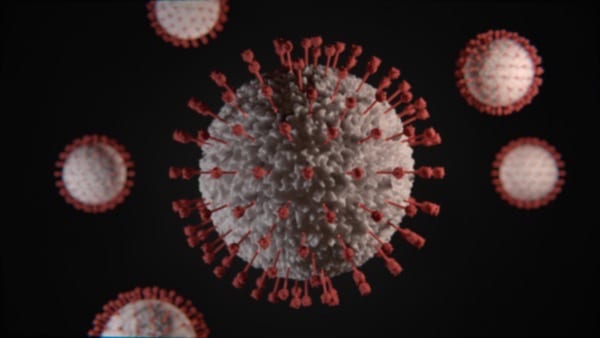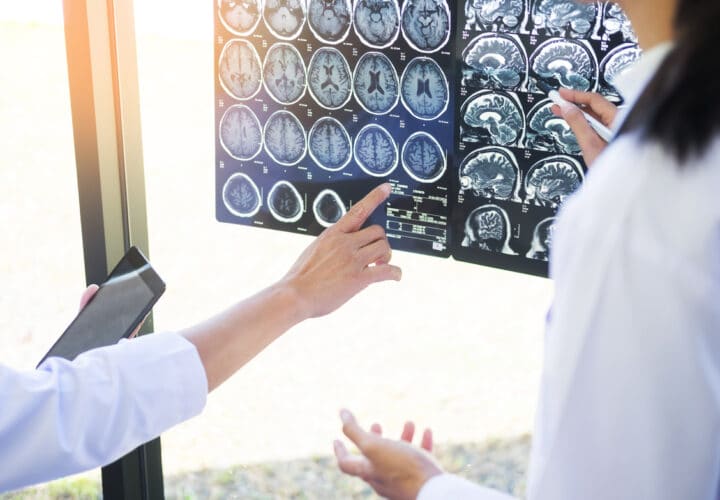Researchers in Sweden looked at more than 400,000 cases of neurodegenerative disease. They saw one striking trend: People who experienced recurring severe infections before the age of 40 had double the risk of developing Alzheimer’s.
Ever since German physician Alois Alzheimer first described the disease in 1906, scientists have searched for the root cause of Alzheimer’s. Though the most popular theory centers on beta-amyloid protein plaques as a cause, this hypothesis remains unproven as anti-amyloid drugs like Aduhelm have yet to show conclusively that clearing plaques improves cognition. But since the start of the COVID-19 pandemic, the infectious idea that bacteria or viruses could trigger the disease has been catching on.
A recent study published in PLOS Medicine looked at health records from people diagnosed with neurodegenerative disorders in Sweden over a 46-year period, finding that repeated severe infections before the age of 40 doubled the risk of an early Alzheimer’s diagnosis. These cases appear to be distinct from early-onset Alzheimer’s, which are linked to genetic factors. This group also had a 40 percent higher chance of being diagnosed with Parkinson’s.
The study’s lead author, Jiangwei Sun, PhD, is a biostatistician and researcher at the Karolinska Institute.
“Hospital-treated infections, especially in early- and mid-life, were associated with an increased risk of Alzheimer’s disease and Parkinson’s disease, primarily among cases diagnosed before 60 years,” he said in a press release.
What the study found
The researchers analyzed the health records from 291,941 Alzheimer’s cases, 103,919 Parkinson’s cases, and 10,161 amyotrophic lateral sclerosis cases, comparing them to a large control group.
They found that many of the people who developed Alzheimer’s or Parkinson’s had a hospital-treated infection at least five years before their diagnosis. It didn’t matter where the infection was located, nor what kind of microbes caused it in the first place.
Having one infection raised the risk of developing Alzheimer’s by 16 percent and Parkinson’s by 4 percent.
But when looking at people who experienced multiple infections before the age of 40, the chances of developing Alzheimer’s before the age of 60 doubled. The risk of developing Parkinson’s increased by 40 percent.
What do these percentages mean? On average, a person under age 60 has a one in 20 chance of developing Alzheimer’s symptoms. However, if that person experiences multiple severe infections in their younger years, the chances increase to one in 10.
Curiously, there was no association found for individuals that were diagnosed at age 60 or older. This suggested that the infections may have accelerated the course of Alzheimer’s in individuals who were already at risk of developing it.
How infections could trigger neurodegenerative disease
Infected regions of the body are not Las Vegas: What happens at infectious sites does not stay at those infectious sites.
“Infectious agents [like bacteria or viruses] might also elicit inflammatory responses at infection sites which can cross the blood-brain barrier, and elicit neuroinflammation through activating microglia and astrocytes [the brain’s immune cells],” Sun told Being Patient. He added that some infections enter the brain and remain dormant, triggering inflammation while also infecting other neurons.
There is even evidence in humans that dormant infections with the Epstein-Barr virus — which is responsible for mononucleosis, the kissing disease — can increase the risk of multiple sclerosis 32-fold.
Emerging evidence from people infected with COVID-19 further suggests that viral infection may increase the risk of developing Alzheimer’s.
The twist to this study is the finding that several early- and mid-life infections may trigger or speed up the disease process for Alzheimer’s and Parkinson’s.
Sun said that while the study did not find any associations with amyotrophic lateral sclerosis, it does not rule out the role that infections may play in the disease.
“We hypothesize that infectious events may be a trigger or amplifier of a pre-existing disease process, leading to clinical onset of neurodegenerative disease at a relatively early age among individuals with disease predisposition,” Sun said. “Active monitoring and prevention of severe infections may therefore help to prevent or delay disease onset among high-risk individuals.”




